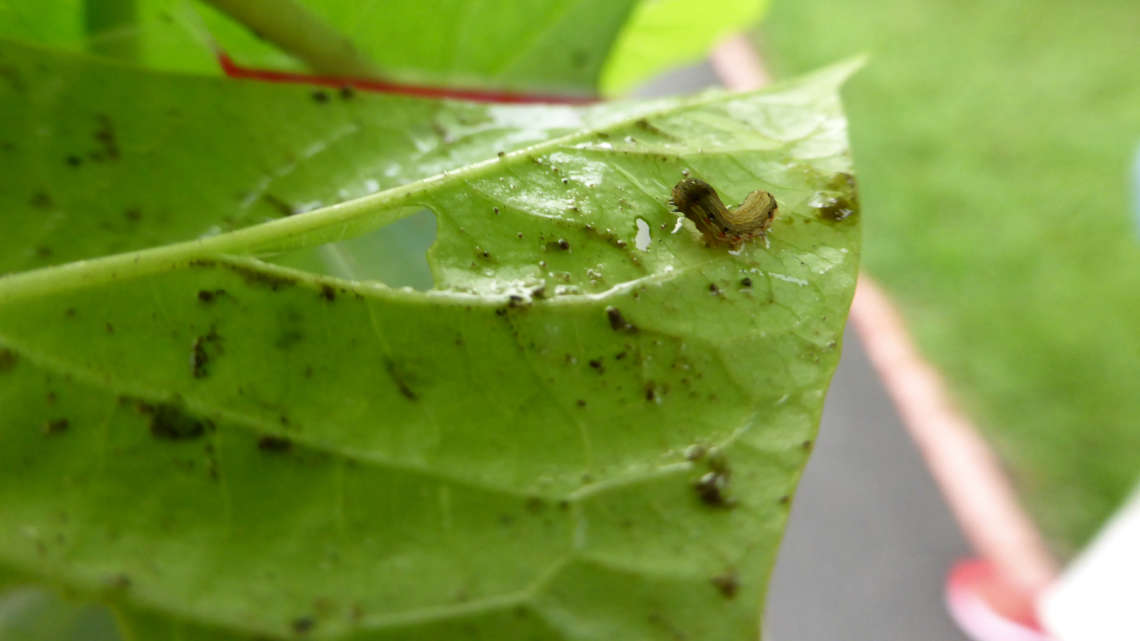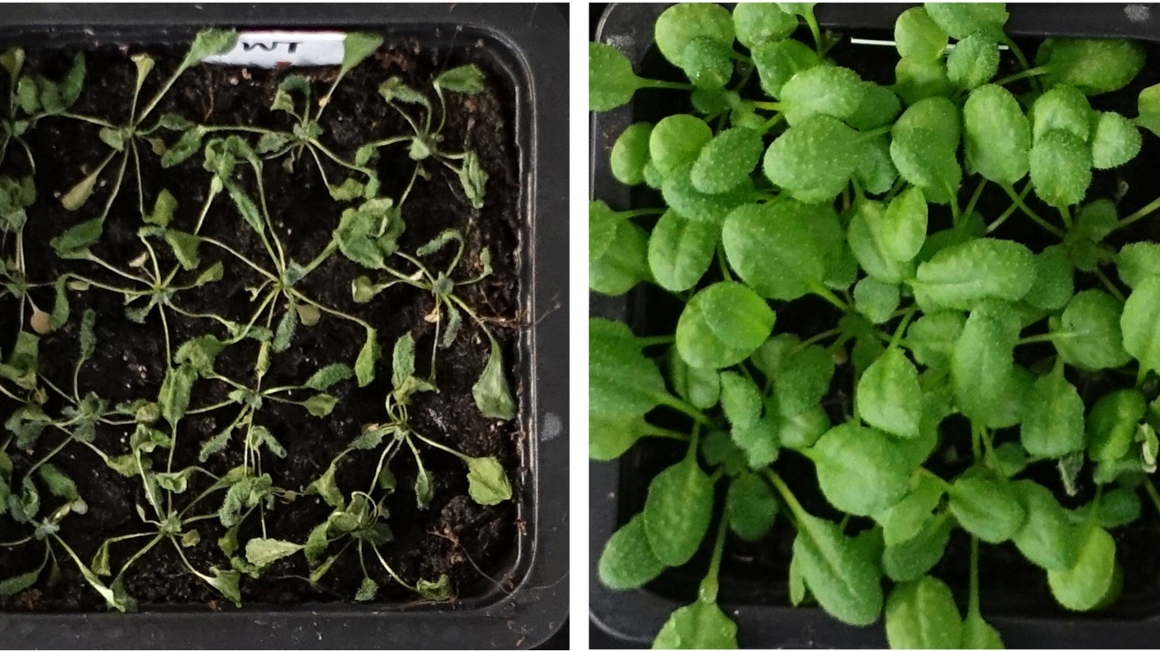Sweet potatoes raise alarm with fragrance
When insects attack, certain varieties of sweet potatoes release a fragrance that causes neighboring plants to start defending themselves.

A fragrance wafts over the sweet potato field. What for us smells like a herbal balm is an alarm bell for the tuber plant, as researchers at the Max Planck Institute for Chemical Ecology (MPI) have now discovered. In the "Scientific Reports" of the Nature group, the team reports on the function of this variety-specific defense mechanism.
Sporamine stops insect appetite
The scientists had noticed that a certain sweet potato variety (Tainong 57) had a higher resistance to plant pests than a related variety growing under the same conditions (Tainong 66). The damaged leaves of the more resistant variety emitted the fragrance similar to "a fragrance used in a sauna". The study showed that the injured leaves produced several fragrances, including the terpene compound DMNT. This triggers the production of sporamine in the plant. The protein inhibits the digestive enzymes of attacking insects, causing them to lose appetite.
DNMT warns neighbors
However, plants in the vicinity of the infested plant can also reliably detect DNMT. Even undamaged plants prophylactically form DNMT and thus stop insect pests at an early stage. "To our surprise, only one single volatile is enough to induce a specific defense reaction in a sweet potato plant of the Tainong 57 cultivar. Moreover, the same substance is simultaneously used by the plant for communication with neighboring plants in order to transmit important information," explains Axel Mithöfer, head of the Physiology of Plant Defence working group at the MPI.
Breeding potential
It is also noteworthy that the Tainong 66 variety does not have this mechanism and produces significantly less DNMT. "Our results are of great agricultural importance, because the consistent cultivation of resistant cultivars, such as Tainong 57, could help to considerably reduce the damage caused by herbivores in a natural way," explains Anja Meents, first author of the study. In addition, future varieties could be bred in such a way that they secrete more DNMT and perceive the fragrance even more effectively, thereby minimize the use of pesticides. These details will be the subject of further studies.
bl/um


